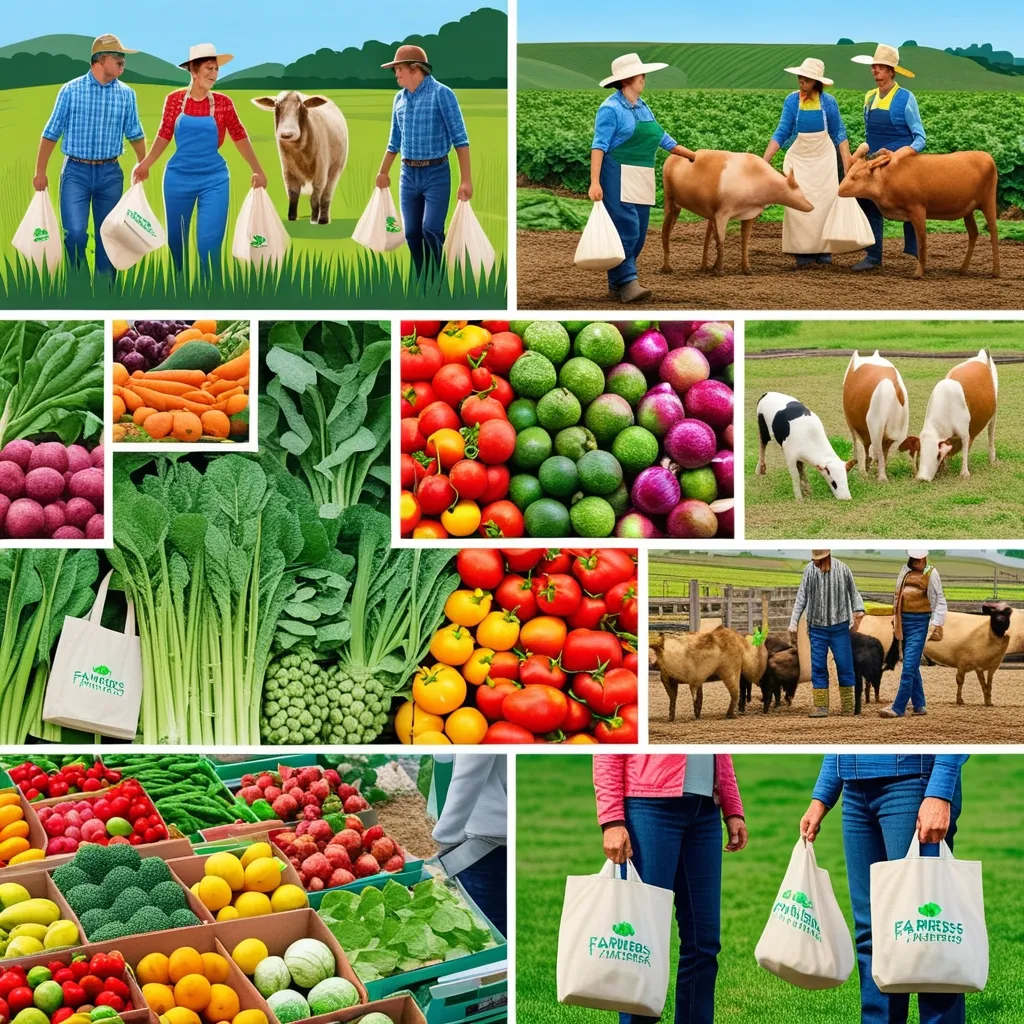Grocery shopping might seem like a routine chore, but it’s one of the most powerful ways you can make a difference in today’s world. Making eco-conscious choices while filling your cart has far-reaching benefits. Not only does it promote personal health, but it also supports environmental conservation and uplifts the community. Let’s dig deeper into why going local and organic is more than just a trend.
Organic foods have won hearts for a reason. They are grown without the use of dangerous chemicals like pesticides, synthetic fertilizers, and herbicides. No antibiotics, growth hormones, or bioengineering, either. So, when you pick that organic apple, you’re essentially saying no to these harmful additives. Bonus: Organic farming practices preserve our soil and water, ensuring future generations can enjoy these precious resources.
Meat lovers can breathe easy, too. Organic animal products, such as meat, poultry, eggs, and dairy, come from animals raised on 100% organic feed. These animals are not pumped up with antibiotics or growth hormones and live a more natural life outdoors. This means you get healthier animal products while treating our furry friends better.
Ever wondered what it takes for something to be labeled “organic”? It isn’t just slapped on a product randomly. A government-approved certifier inspects the farm to make sure all organic standards are met. Depending on the label, the product might be 100% organic, at least 95% organic, or contain a minimum of 70% organic ingredients.
Another powerhouse in eco-conscious shopping is local produce. Think about it: the veggies that haven’t traveled thousands of miles are often fresher and taste better. Shopping at farmers’ markets or co-ops boosts the local economy, reduces transportation carbon footprints, and supports local farming communities. It’s a win-win for freshness and community upliftment.
But wait, sustainable grocery shopping doesn’t stop at just organic or local foods. It’s also about making choices that prioritize ethics, the environment, and health. This includes buying from brands that care about their environmental impact or promote fair labor practices. Also, look out for products with sustainable packaging and consider buying in bulk to reduce waste and carbon footprint.
Shifting to eco-friendly grocery habits doesn’t need to be a daunting task. Start with some practical tips. Plan your meals before heading to the store. It helps reduce impulse buys and cuts down on food waste. Buying in bulk is another brilliant way to save money and the environment, as it reduces packaging waste and trips to the store. Don’t forget to stock up on seasonal produce. It tends to be cheaper, tastes better, and supports local farmers.
Ditch those single-use plastic bags and opt for reusable ones. This simple switch can significantly cut down on plastic waste. Also, aim to avoid products with excessive packaging. Fresh, whole foods are usually healthier and less packaged.
Each decision you make at the grocery store echoes far beyond your kitchen. Choosing organic means supporting farming practices that conserve soil health, boost biodiversity, and reduce pollution. Opting for local ensures that your money supports local farmers and economies. It’s preserving agricultural land and ensuring that your community thrives.
There’s a popular misconception that going organic and local is expensive. But, with smart choices, it can be quite budget-friendly. Stores like Trader Joe’s or Sprouts offer a range of organic products at competitive prices. Farmers’ markets can sometimes be cheaper than traditional grocery stores, plus you have the bonus of negotiating prices or buying in bulk for further savings.
Food waste is a massive issue. About 30% to 40% of all food in the United States goes to waste. Combat this by smart shopping and proper storage. Plan your shopping, stick to your list, and give “ugly” produce a chance—they’re often discounted but just as nutritious. Also, store your fruits and vegetables correctly to extend their shelf life, and get creative with leftovers to minimize waste.
Thinking of reducing your environmental footprint even more? Embrace a plant-based diet. Animal agriculture significantly contributes to greenhouse gas emissions, deforestation, and water pollution. Going plant-based, even partially like with “Meatless Mondays,” can make a substantial impact. You don’t have to go all in; even small changes help.
Eco-conscious grocery shopping transforms your kitchen into a place of health and environmental stewardship. It’s a step towards supporting sustainable agricultural practices, ensuring our environment remains intact for future generations. Next time you’re at the store, think about the choices in front of you. That organic tomato or the locally grown lettuce makes a bigger difference than you realize.
Imagine a world where your grocery choices contribute to a thriving ecosystem, sustainable practices, and healthy communities. Each small step you take—like choosing organic or local—creates ripples of positive impact. So, go ahead, make those mindful choices, and feel great knowing you’re contributing to a healthier, more sustainable future.






